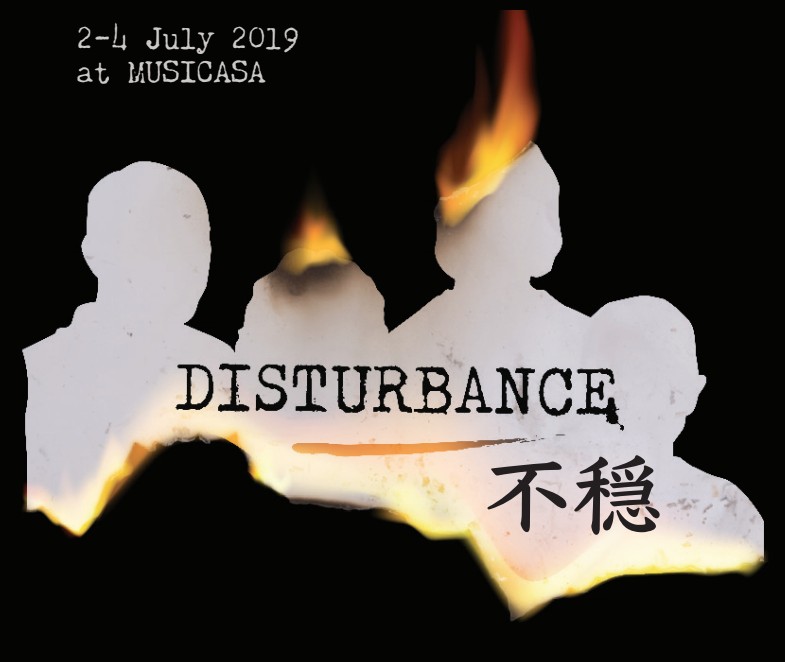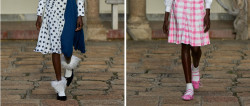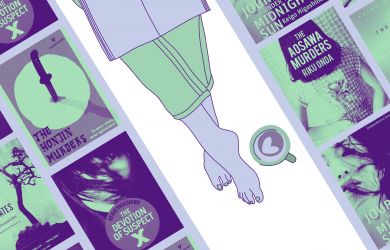
June 18, 2019
Disturbance the Musical
A bold and moving adaptation of Ivy Alvarez’s poetry collection
Modern, confronting and bold, the new musical theater production “Disturbance” delves into the lives of a family struggling with domestic abuse, and the disturbing effects this violence has on the wider community. Originally a collection of poetry written by Ivy Alvarez based on a true story in the UK, “Disturbance” will soon be making its theater debut this July in Tokyo. Metropolis spoke to the scriptwriter and director, Rachel Walzer, and composer and producer, Mark Ferris, to learn more about this challenging adaptation.
Metropolis: The idea of using musical theater to present a story of domestic violence sounds surprising. I’m guessing that “Disturbance” is no “Lion King” or “Singing in the Rain.” How can this medium be useful to present such a serious social issue?
Mark Ferris: Many people imagine a musical and think of childish, family related things and not serious information. However, if you asked someone if music could, by itself, convey serious themes, they would probably say yes. Songs can be desperately sad and powerful. “Disturbance” is aiming to be moving, bold and brave, and one way to do this is to confront and surprise audiences through the juxtaposition of odd things, like applying different musical genres in unexpected scenes.
Ultimately, we’re a creative team of artists, and I’d like that our presentation of this domestic abuse story will help audiences to reach their own conclusions, allowing them to form their own productive discussions about what is a highly important and complex social issue.
Rachel Walzer: As a director, I can use musical theater to be unpredictable and use techniques that reflect the reality of [victims] of domestic abuse as a kind of social message. A lot of victims suffer in secret and, although everything looks fine on the surface, they are concealing a lot of layers of pain and struggle. The music in “Disturbance” is often very beautiful and some scenes begin almost comically, but as we invite the audience into this world, the darkness under the characters’ facades begins to unravel.
When is it our responsibility to get involved when we see something wrong that’s happening to other people within our own communities? There’s a fine line here so I’m not trying to answer any questions in this production, but I am trying to wake us up. If we can be perceptive enough to notice that something is not quite right we can always be a friend to somebody who needs help in our community and offer an ear, refuge or even a cup of coffee.
M: “Disturbance” is based on a book of poetry by Ivy Alvarez. How was the experience of adapting poems to music and stage?
MF: There’s a perception that domestic violence usually happens between spouses behind closed doors, but the issue spills out and affects their family, neighbors, the police, friends and so on. Just as Alvarez writes from these different perspectives of people involved, I composed music exemplifying the multifaceted nature of many domestic abuse cases. I merged voices from separate poems together into songs, reinventing ways to present different perspectives using the stage, characters and musical-genre experimentation.
RW: I feel that Alvarez’s poetry criticizes society because most of the poems are written from the perspective of people in the community who witnessed what was going on but didn’t react or help. I didn’t want to lose this integrity of the original work, but I like to follow my instincts and worked intuitively with the actors I had, whilst using my understanding of the psychology of an abused person. For example, Alvarez wrote many poems from the first person perspective of the abused wife, but I felt artistically that people who suffer from domestic violence don’t use their voice. So, I chose a cast member who uses corporeal mime to express herself through movement. Her voice is actually sung by other people or projected on the screen via extracts of the original poetry.
M: Domestic violence is, unfortunately, a global concern and the cast and creatives themselves are very international. How was keeping this sense of cultural diversity important to you, whilst also considering the Japanese audiences for the Tokyo debut?
MF: Taking the view that we as artists are not necessarily experts on the subject, we spoke to the co-founder of the Japan-based organization Resilience, which supports women affected by domestic violence. A lot of the things she [noted] appear to be similar to other cultures — such as how a lot of this arises out of a lack of connectedness. If you find yourself alone and without those supportive connections of your social circles, you might find yourself getting into situations which are less desirable or controllable.
RW: Even though the original story was from the UK, I’m trying to keep it as international as possible because, unfortunately, the issue is international and timeless. There [are] a lot of elements I’m using that are not cross-cultural, but to me that’s absolutely fine. The cast are from all over the world and look different despite acting as family members, and this also doesn’t matter to me. I like the idea of having this ambiguity of location as it’s about an international message.
The only thing that I want to keep specific for Japan is the details of the support groups that will be on the screen at the end. I want to keep it local and relevant for the audience here who might need that help. We’re not showing something and ending with a brick wall, we’re opening it.
July 2-4
6:30pm
Musica
3-33-1 Nishihara, Shibuya-ku
www.disturbancethemusical.com







